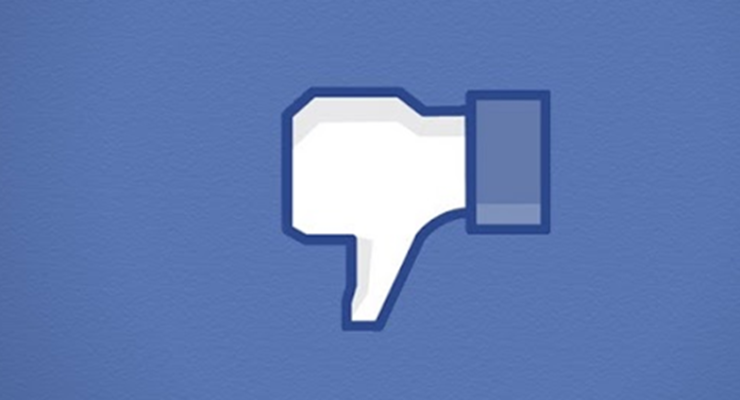
Facebook may be a 100-pound gorilla in the word of social media, but it’s just the latest company to learn about the crucial balance between size and reputation.
The global financial crisis popularised the term “too big to fail”; it was used when the US government stepped in to bail out Wall Street. That move saved a number of very large and very greedy investment houses but did nothing for their already questionable reputations.
With size often comes hubris and arrogance. Think no further than the devastating Australian banking royal commission in 2018, which shredded the reputation of our largest finance organisations.
What was needed was tangible evidence of improvement, not platitudes and promises to do better. We certainly didn’t need the mercifully short-lived Bankers Association advertising on the theme of “Australian banks belong to you”. Over the subsequent years there has been a continuing parade of further damaging revelations and headlines.
Or, more recently, consider Crown. The gambling behemoth most likely thought it was too big and politically powerful to lose its casino licence in Sydney, despite admissions of wrongdoing. It now faces an existential crisis.
Reputation is among any company’s most valuable assets. It can represent 60-70% of market value, and even higher for digital companies like Facebook.
But it’s important to remember where reputation comes from: while branding is what you say about yourself, reputation is what others say about you. Facebook seems to be pursuing its business goals regardless of repetitional cost.
It is possible to have two contradictory reputations. The best-known example is American big-box retailer Walmart, which has a great reputation among consumers for providing reasonable quality at an affordable price. At the same time it is notorious for paying minimum wages and generates high-profile protests in many small towns where its arrival threatens to destroy small local traders.
That may be where Facebook is heading. Valued — though not admired — for the service it provides, yet disliked and distrusted for its behaviour.
The question is whether that can be a sustainable model in a highly competitive market.
Tony Jaques is author of Crisis Counsel: Navigating Legal and Communication Conflict.








I can’t see why Facebook would care about it’s reputation – it’s a platform where reality it’s irrelevant. I don’t see why it would care about an insignificant country like Australia, either.
And I don’t understand why Google is bothering to play along with the government’s ludicrous game – we’re a tiny proportion of the world population, after all. Poor old Scotty isn’t nearly as important as he’d like to think
Agree, but in Oz it’s being spun as a victory through local initiatives when it’s been a victory for both Facebook and Google doing the running…. while Oz ‘owned’ govt. follows….. Google News Showcase was a global initiative from some time ago….. not through recent noise in Oz…… for paltry amounts (vs. ambit claims).
A modern version.for the digital age, of the Tasmanian Mercury’s (apocryphal?) headline “We Warn the Tzar“?
It’s just the sort of ‘big noting’ that would appeal to a daddy dag, boastful without the Abottrocity’s macho shirt fronting boast.
(How I longed at the time to see him try that on Vlad!)
“Facebook may be a 100-pound gorilla…”
So it’s a 7 stone weakling? What?
In Australia, that’s 43kg
Even a hundred kilos would still be small for a female.
Bringing up the Banking Royal Commission and the local casino is a bit fraught: wait until those issues have come to a conclusion, perhaps? Doesn’t look as though many (any?) of the Banking recommendations are going to get up: business as usual. Who’ll take bets on there not being a casino at Barangaroo at the end of the day?
Our politicians give us daily evidence that reputation is now a coin of limited value.
True AR – but consciences have been commodified for big bucks?
Hubris and arrogance? Sauce for Facebook : sauce for Murdoch?
I am not a Facebook user, so am probably missing out on something here.
I understand the Murdoch media and those supported by it being upset with Facebook over their news ban.
I don’t understand the other players, including Crikey and the ABC, being so caught up in a desire to recieve Murdoch’s dropped breadcrumbs.
I am perfectly happy with people realising that Facebook is in this for Facebook and not for us.
I am even OK with a targetted tax to support original news.
However, I am very uncomfortable with that tax being targetted at just a couple of organsations, even if they are the largest in the room.
If there should be such a tax, then it should be applied evenly. If other organisations link to a Crikey article, then I would accept Crikey being paid, on the proviso that when Crikey links to other media organsations, it in turn pays those organisations.
And yes, this means that there will be less sourcing of other news sites due to linking no longer being free.
You realise that what you are proposing is a revolution in information gathering?
Imagine if there were a group of diligent, incurably curious & intelligent people who rootled about in dark & hidden by-ways of bigbiz & bureaucracy trying to find out their dirty dealings & secrets!
And that there was somehow somewhere their findings could be made available to the public.
Surely society would collapse, if confronted by the facts on how sausages & laws are made?
Much better to have lifestyles of the greedy & gratuitously gauche filling the void between the ears!